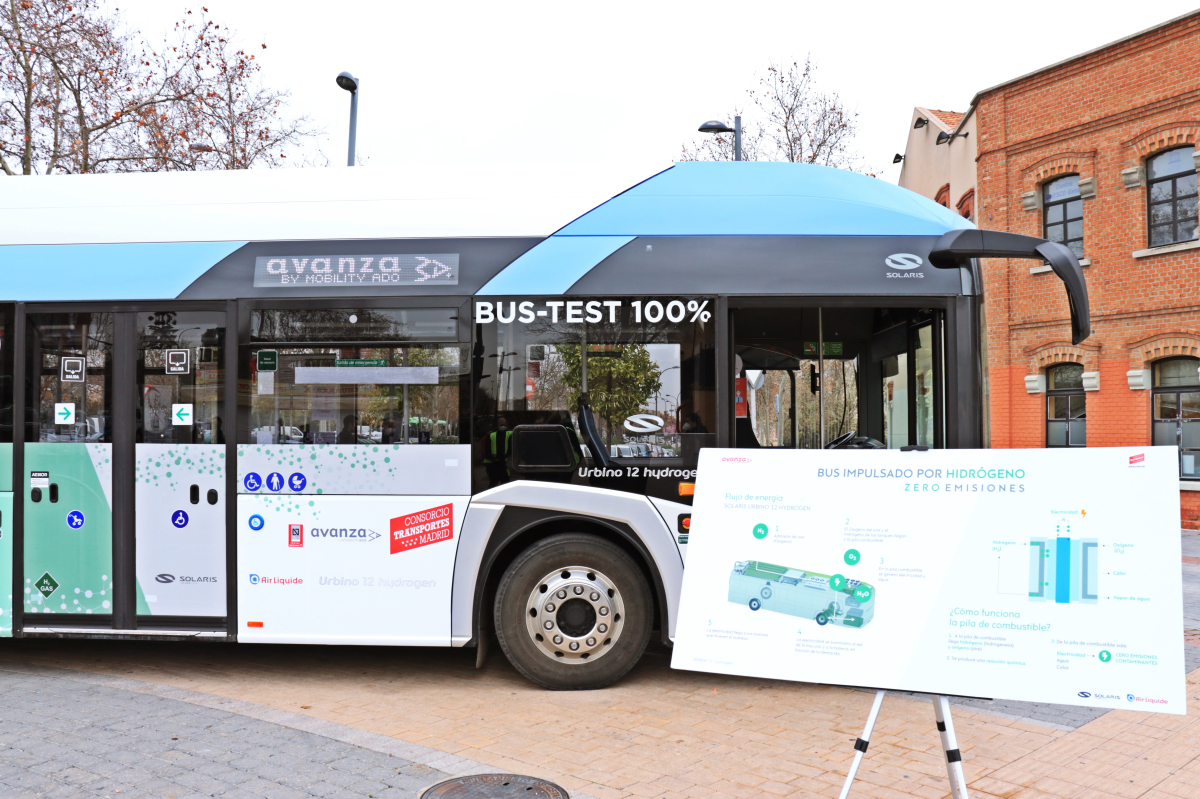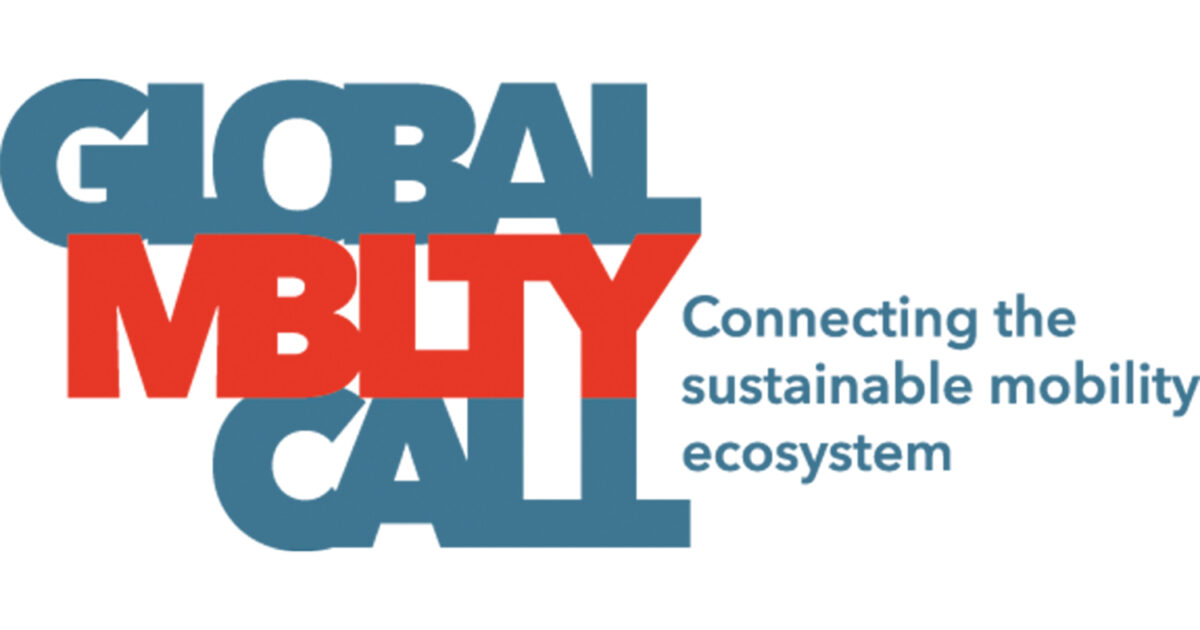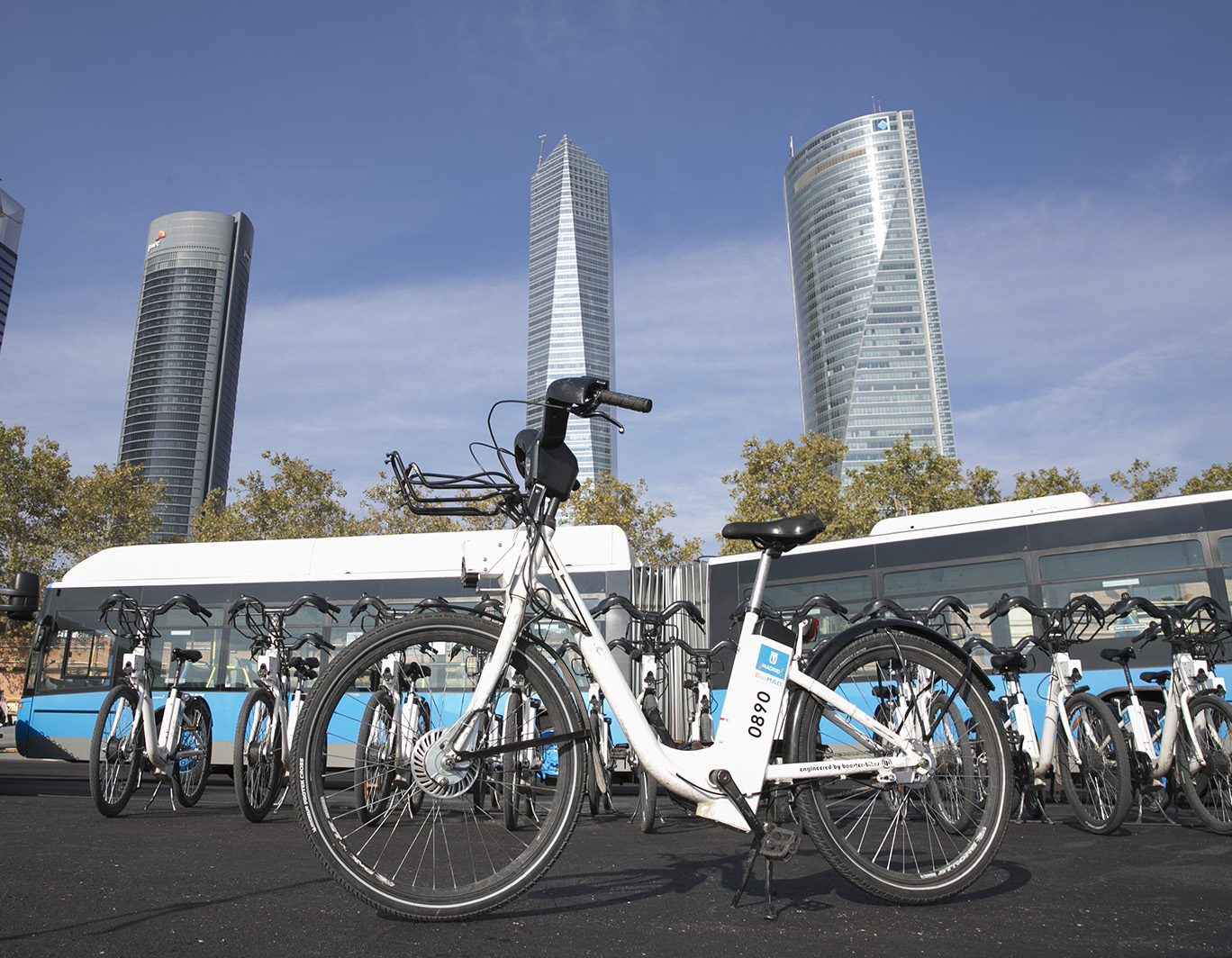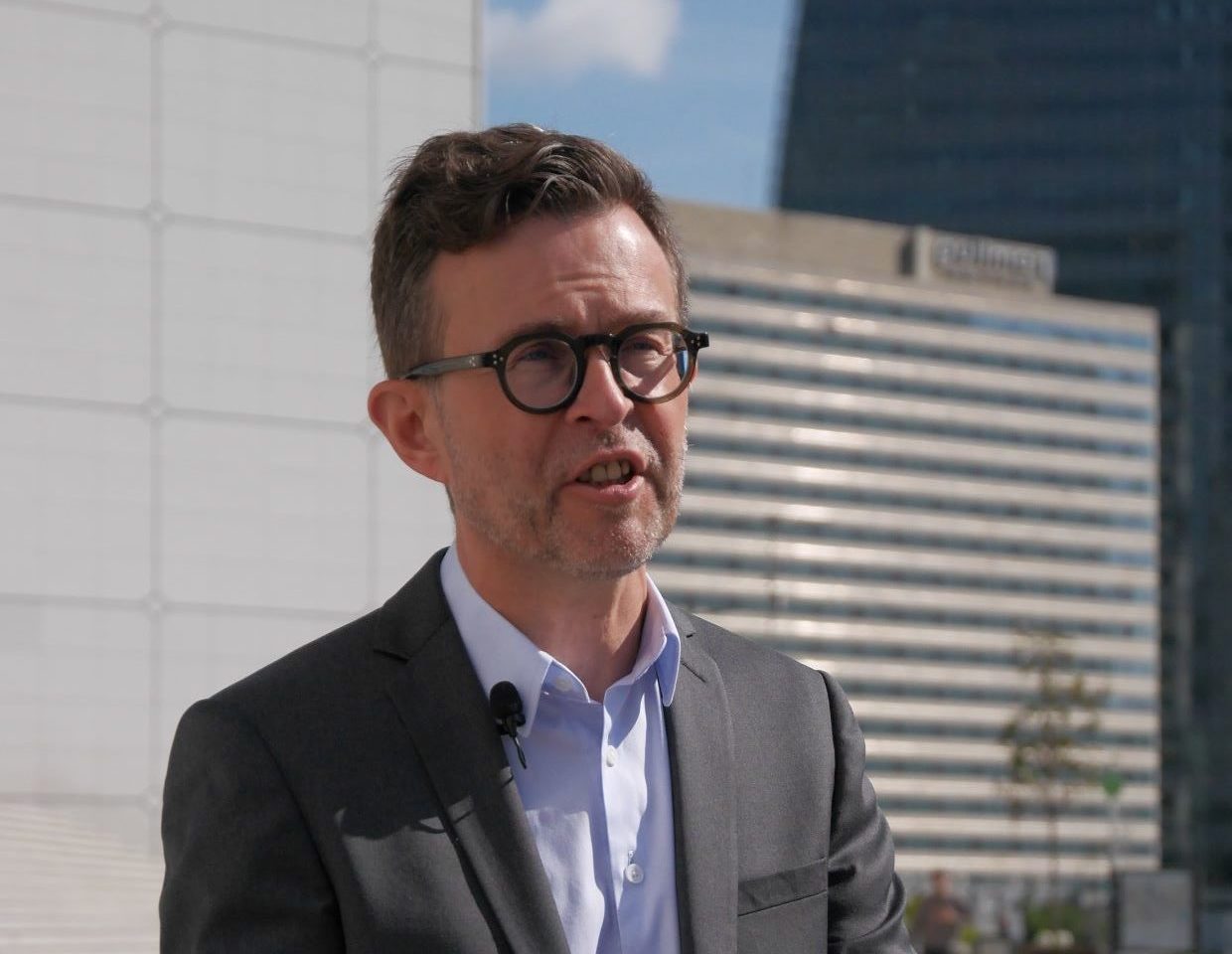
Photo: Avanza-bus-hidrógeno
Hydrogen use takes off as a clean mobility option
16 October 2023
Hydrogen is a promising alternative fuel for zero-emissions transport in those segments where electrification is more difficult or not feasible at all. It is a very interesting option in sustainability terms, even though its widespread use would require both an acceleration of the development of refuelling infrastructures and mature, cost-effective fuel cell technologies.
In 2022, hydrogen accounted for less than 2 percent of Europe’s energy consumption and was primarily used to produce chemical products. Nevertheless, the global hydrogen economy has shown momentum during the last few years and Europe is now leading on new investments commitments. Twenty percent of the announced projects are related to mobility, according to the Hydrogen Insights 2023 report by McKinsey, which underlines that only around 1000 refuelling stations are now in operation globally.
Hydrogen is the most abundant chemical element on Earth. It can be extracted from water using electrolysis, which splits water molecules into oxygen and hydrogen atoms. Combining the atoms again in combustion, it generates the energy to power vehicles. In order to be considered green, all the processes involved in the transformation of hydrogen must be powered from renewable energy sources. Additionally, storage and transportation shall build on renewable energy to ensure a fully climate-friendly cycle.
Existing technologies for producing climate-neutral hydrogen are still too inefficient or too expensive for broader application. A research team at the University of Tübingen (Germany) has recently presented a new type of solar cell with remarkably high efficiency. A special feature of this development is that an additional external circuit, such as in a photovoltaic solar panel, is no longer necessary. This innovative approach makes the technology more compact, more flexible and potentially more cost-efficient.
Hydrogen powered buses in Madrid
The European Union states that in the first phase, early adoption of hydrogen can occur in captive uses, such as local city buses, commercial fleets like taxis or specific parts of the rail network. Madrid has already incorporated into its public transport network the first fuel cell bus, refuelled with green hydrogen produced entirely by HVR energy in the first production and supply plant in the Madrid region.
The hydrogen used is totally renewable since it is only generated using renewable electricity. Since the hydrogen is obtained in Madrid, it does not need to be transported using conventional trucks, and therefore the production and supply cycle is 100 percent green.
Project leaders HVR energy and Avanza will address the challenges of the development of green hydrogen focused on mobility solutions for people and goods in their participation in the second edition of Global Mobility Call. The event, which takes place from October 24 to 26 in Madrid is a pivotal meeting point for sustainable mobility , and is where the largest international multisector community driving the movement towards sustainable, safe and connected mobility will come together to exchange this know-how.
The European Commission’s 2050 Long-term Climate Strategy specifies that there is no single fuel solution for the future of low-emission mobility, but all main alternative fuel options are useful to a different extent, in each of the transport modes. Hydrogen-powered fuel cell electric vehicles are not just an answer in the heavy-duty vehicle sector. The rapid refuelling and their long range make them strong solutions for sustainable urban mobility, especially in the context of efficient fleet management for passenger vehicles.
Brought to you by:






